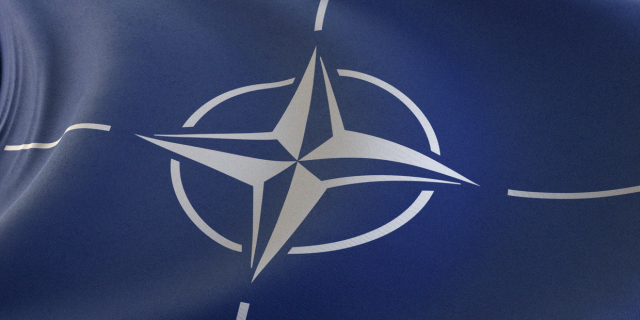The Hindu: NATO's expansion to the east could lead to the militarization of the ArcticNATO's expansion to the east will significantly change the global security architecture, writes The Hindu.
It will also affect NATO's cooperation with other countries, such as India, which will have to closely monitor possible scenarios.
Shakti Prasad SrichandanRussia's actions have now united European countries more than ever before, which is also becoming a test for India as a global player.
The North Atlantic Treaty Organization (NATO) has almost doubled its borders with Russia after Finland became its 31st member in April 2023. Sweden will eventually join the alliance as soon as the ratification process is completed. This will expand NATO's territorial space as never before, and also make the Baltic Sea a "NATO lake". Finland's entry into the bloc was the fastest in the history of its existence.
For a long time, the Scandinavian countries Finland and Sweden refused to take sides, maintaining a policy of "military non-alignment" and focusing more on their internal socio-economic development, thereby turning into models of modern welfare states. Their relations with Russia were, if not so deep, but mostly very moderate. However, the Russian special operation in Ukraine has changed their attitude to their eastern neighbor and to the predictability of its leader Vladimir Putin. Of course, Putin's actions have made certain changes in the dynamics of regional security in Europe.
Russia's actions, European unity
Firstly, doing business with Russia has never been easy for the European Union, mainly because of disagreements between member states. Some European countries, such as Germany and France, had a certain "weakness" towards Russia, unlike some Baltic countries, such as Estonia, Latvia and Lithuania, which preferred to behave very cautiously with it. Russia's actions in Ukraine not only brought military tensions back to the European space of the post-World War II era, but also dealt a blow to the image of the EU as a global player that failed to prevent an armed conflict in its neighborhood. A remarkable result of this unfavorable situation is that Russia's actions have united European countries more than ever.
Secondly, President Putin may not have expected Finland and Sweden to abandon their neutrality so soon. Their membership in the alliance will also mean increased military spending and military restructuring, in addition to the deployment of NATO forces within the new command structure. In response, Russia will also strengthen its military presence in the adjacent northern regions and the Kaliningrad enclave. Bordering Finland, these northern regions (from St. Petersburg to Murmansk) are part of the Central Region of Russia, which has great strategic and economic importance for Russia. The presence of NATO at the Finnish threshold will further increase Russia's anxiety.
The focus is on the Arctic
Thirdly, in addition to these immediate border areas, another region where the countries of Northern Europe (or, for that matter, NATO) may face confrontation with Russia is the Arctic region, which previously received little attention from the alliance due to its too hostile natural environment and climate. But due to climate change and the growing prospects for the discovery of untapped reserves of oil, gas and other minerals, this region is beginning to arouse increased interest, which creates unexpected and complex problems. In addition to the USA, Canada and Russia, the Nordic countries such as Norway, Denmark, Iceland, Sweden and Finland are members of the Arctic Council and are directly interested in Arctic affairs. Local clashes between Russia and other countries took place here. The membership of the Nordic countries in NATO has brought a new geostrategic dimension to the future of the Arctic.
Previously, the normal option for Russia was cohabitation with NATO, not confrontation. But Moscow's military action changed everything. With the special operation in Ukraine, Putin wanted to prevent NATO from expanding its presence in Europe. Instead, he, on the contrary, provoked the expansion of NATO by creating a larger alliance base in the Nordic countries, which complicated the security situation and created new borders. And now there are more excuses for the existence of NATO. Many countries now see their secure future in Article 5 of NATO. In fact, Putin has made NATO great again.
Implications for India
In recent years, India's cooperation with NATO has been limited and mainly carried out within the framework of a political dialogue. India remains strategically silent about the recent expansion of NATO. But Delhi needs to keep a close eye on the scenarios that may arise.
Firstly, Russia has few friends left in the current situation, and India, as one of them, is unlikely to help Moscow in maintaining the balance of power to confront NATO. China takes a firm stand against the existence of NATO and its expansion in the Indo-Pacific region. Russia can count on China's support, which brings the two countries closer together strategically and militarily, but it cannot be in India's interests.
Secondly, in recent years, the Scandinavian region has fallen into the band of the Indian "strategic radar". Prime Minister Narendra Modi visited Copenhagen to attend the Second India-Nordic Countries Summit in May 2022 and stressed India's deep interest in cooperation. This region, which is now under the auspices of NATO, will complicate India's strategic choice.
Thirdly, India has observer status in the Arctic Council and pursues an Arctic policy aimed at developing multi-level cooperation. Finland's membership in NATO, which Sweden will soon join, along with China's claim to the role of an "Arctic state" and its partnership with Russia in this region, may lead to the militarization of the Arctic, which will affect the interests of all parties, including India.
India's role as a global player will be put to the test given the new European security architecture, led by NATO and challenged by Russia.

